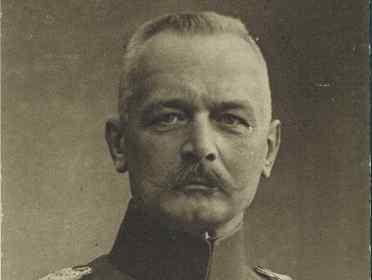First Battle of Ypres (October 11 – November 22, 1914)

After the First Battle of the Marne, Erich von Falkenhayn replaced Helmuth von Moltke as the Chief of the German General Staff. Despite the defeat at the Marne, Falkenhayn believed that it was still possible to achieve a quick victory in the Western front and implement the Schlieffen Plan. His plan was to capture the Belgian city of Ypres which would enable the Germans to outflank the Allies from the north. But the city was also of vital strategic importance for the Allies as it was the last in the line of defense of the English Channel ports which were crucial for supply of the British Army in the Western front.
Falkenhayn decided to launch an offensive at Ypres as soon as he would have forces strong enough and the Fall of Antwerp on October 10, 1914, gave him a considerable numerical advantage over the Allies. His plan, however, did not go unnoticed by the French and Ferdinand Foch who became the commander of the French Northern Army Group on October 11. The French planned an attack themselves but the new Chief of the German General Staff did not lose time. He ordered an offensive on October 20 just when the British arrived at Ypres to help the French and Belgian forces. After seven days of continuous fighting between Diksmuide (Dixmude) and Nieuport on the Yser River, the Belgians flooded the area between their positions and those of the Germans. This move and failed breakthrough at Langermarck which inspired the German legend of the Massacre of the Innocents at Ypres (Kindermord von Ypern) forced Falkenhayn to reconsider his strategy.
On October 31, Falkenhayn launched an attack between Gheluvelt and Messines but after the initial success, the British counterattack and superior British rifles pushed his forces back to their lines. The Allies managed to withstand another German attack at the Menin Road on November 11 and two days later, bad weather ended the hostilities although the First Battle of Ypres officially ended on November 22. Neither of both sides managed to achieve a decisive victory but the First Battle of Ypres was a major success for the Allies who managed to prevent the Germans to capture this strategically important city as well as prevent the implementation of the Schlieffen Plan. The First Battle of Ypres has also shown the advantage of defensive over offensive and by spring of 1915, over 200 miles long line of fortified trenches was constructed from the North Sea to the Swiss Jura Mountains. The Germans suffered over 100,000 casualties with some units losing as much as 70% of men. The French lost about 50,000 men and the British about the same which means that 1/3 of the original BEF was destroyed at Ypres.




